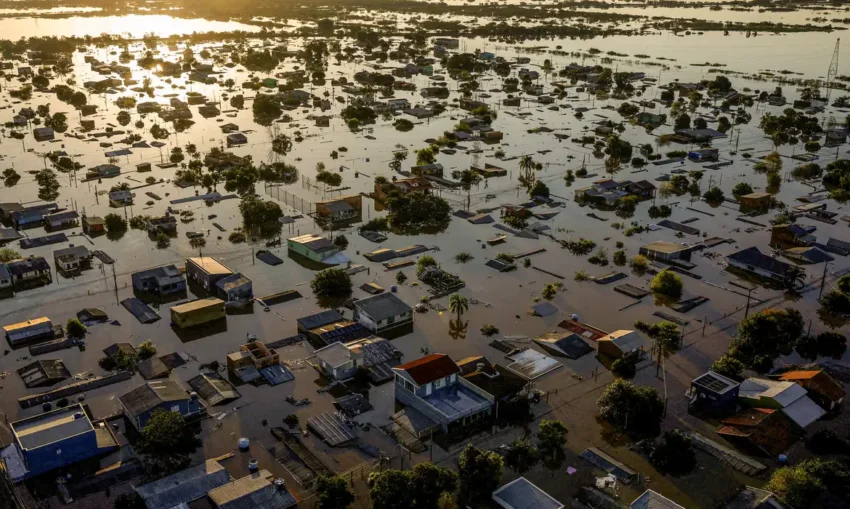Floods in Southern Brazil accumulate around 157 dead.
The environmental imbalance resulting from anthropic actions isn’t news to a vast majority of people. However, establishing a dialogue about the momentary and long-term effects of climate change becomes indispensable in the face of phenomena like the one experienced in Brazil.
To provide context, Rio Grande do Sul is a Brazilian state located at the southern end of the country, with a vast and diverse population. Towards the end of April and the beginning of May, the state experienced extreme storms that have led to a rapid increase in the water levels in the region, causing a large-scale flood that forced many citizens out of their homes.
Currently, the number of residents displaced by the tragic flood rises to over 581 thousand people, many of whom do not even have access to shelter or adequate resources for their survival. In addition to individuals stranded in their homes, mostly apartments, recent data indicate 88 missing persons and 157 confirmed deaths.

Among the main reasons behind this event, “El Niño” stands out as a catalyst since ocean heating significantly contributes to moisture conversion in the region and therefore intensifies rainfall.
However, it is important to note that the causes of such a catastrophe are not limited to the consequences of climate change but also extend to the political sphere. In this sense, governmental negligence combined with laws that restrict investment in flood prevention played a key role in the flooding of the area.
These decisions were not mere coincidences but are part of a project designed to undermine public services and initiate a process of compulsory privatization of state-owned companies. In other words, there is a movement aimed at boosting the profits of private sector companies at the expense of safety and human lives.
Finally, today I would like to propose a reflection regarding the need to report these events to an American audience. Although it is a reality geographically distant from yours, the effects of governmental irresponsibility and climate catastrophes are not limited to Rio Grande do Sul or Brazil but also affect American citizens. Therefore, there is a global lack of climate awareness and popular movements that hold state leaders accountable for their actions, which must be fulfilled by us.








